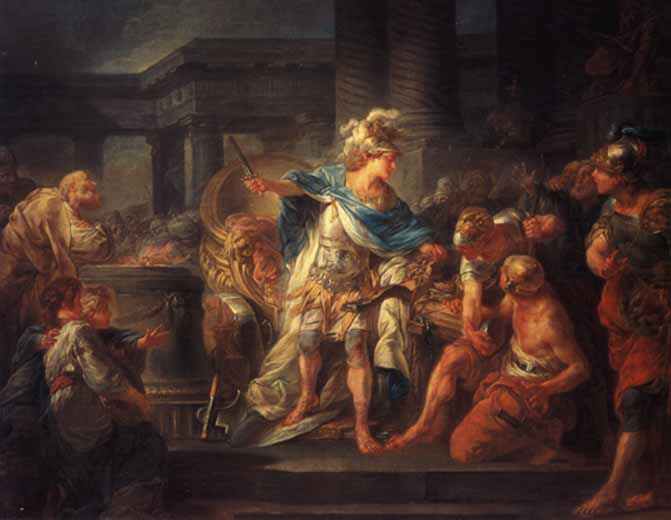Aside from Acts 2 and 4, perhaps the most common Christian argument for socialism is the “welfare system” of ancient Israel.
Let’s look at the arguments from the Jubilee and the gleaning laws.
The Jubilee
Every 50th year in ancient Israel was the year of the Jubilee. All land was returned to the family which originally owned it (Leviticus 25:10). The Jubilee system meant that in effect, any land sold was only rented, with a different price depending on the years remaining until the Jubilee.
In an agrarian society, in which land was the main source of wealth, this system preserved wealth within the families to which God had given it. The system protected people against unjust judges and reduced the danger that a family would fall into an unending cycle of debt.
The Jubilee system is not socialism. It is merely one approach (among many) to the legal question of land ownership. The United States doesn’t follow this system; it would be interesting to speculate whether a modern nation could or should try it.
The Jubilee system lends no special support to the Christian advocates of socialism. It resembles Georgism, a theoretical form of capitalism.
The Gleaning Law
In ancient Israel the law required land owners to leave some of their produce unharvested so the poor, the stranger, or the orphan could collect it. The harvesters were not allowed to pick up left-overs that had been forgotten, and they were not allowed to gather from the corners of the fields (Leviticus 19:9, 23:22).
If this is what the socialist Christians would like to see implemented in the United States, by all means, let us return to a system in which the poor must do the work in order to receive the “welfare.”
The gleaning system does not compare with the modern welfare.
Note that the gleaning laws did not exactly impose a positive obligation (a tax) on the producers. The produce had not yet been collected; the poor still had to collect it. Nor were the producers required to equip the poor, to train them, to employ or manage them, or to do anything except to leave the most difficult part of the harvesting unfinished. Given that God had specifically promised to bless Israel’s crops if they obeyed him, and given the fact that it is God, not man, who makes seeds grow, the gleaning law begins to look less like an imposition upon the farmers and more like a bonus provided by God.
It is not necessary to directly apply the gleaning law today. It was a special provision given to ancient Israel, part of what made it stand out among the nations as God’s representatives (Deuteronomy 7:6). Just as modern Americans do not observe kosher laws or the ancient religious rituals, so we should also understand the ancient gleaning law as being particular to Israel.
Still, we may learn a lesson from the gleaning law:
People should be generous toward strangers and the poor. How should we apply this principle? Surely we should not demand more of the producers than was required by the Old Testament model. We should be careful not to take the specific and narrow example from the Old Testament as being support for much broader collectivization as we see in the socialized medicine, education, housing, and food that the welfare state hands out.
In fact, we do observe some modern implementations of the principle behind the gleaning law. Consider the grocer or the business that donates some of its inventory to charity. This action demands more of the producer and less of the recipient than the Old Testament system. The fact that modern businesses volunteer such generosity suggests that the Old Testament gleaning law would not be needed in our society. Generosity is already upheld as a norm.
As with the case of the Jubilee, the gleaning law gives no support for the modern concept of “social justice.”
To see how tenuous the connection is, try to imagine if Ruth had gone to the field of some greedy farmer who left nothing to glean. Would she have cried out for “social justice” against her “oppressor”? It would not happen. She would have known her poverty was not the fault of the farmer. Though she could wish he was less greedy, she would not claim oppression.
The tenor of the modern discussion of “social justice” bears little resemblance to the case of the gleaning law or to Scripture’s concept of justice. Righteous judgment requires a ruler to show no favoritism, either toward the rich or the poor (Leviticus 19:15).
Those who consider poverty itself to be a form of “oppression” are in grave error. They should return to Scripture to reevaluate their understanding of “justice.”
In this series:
